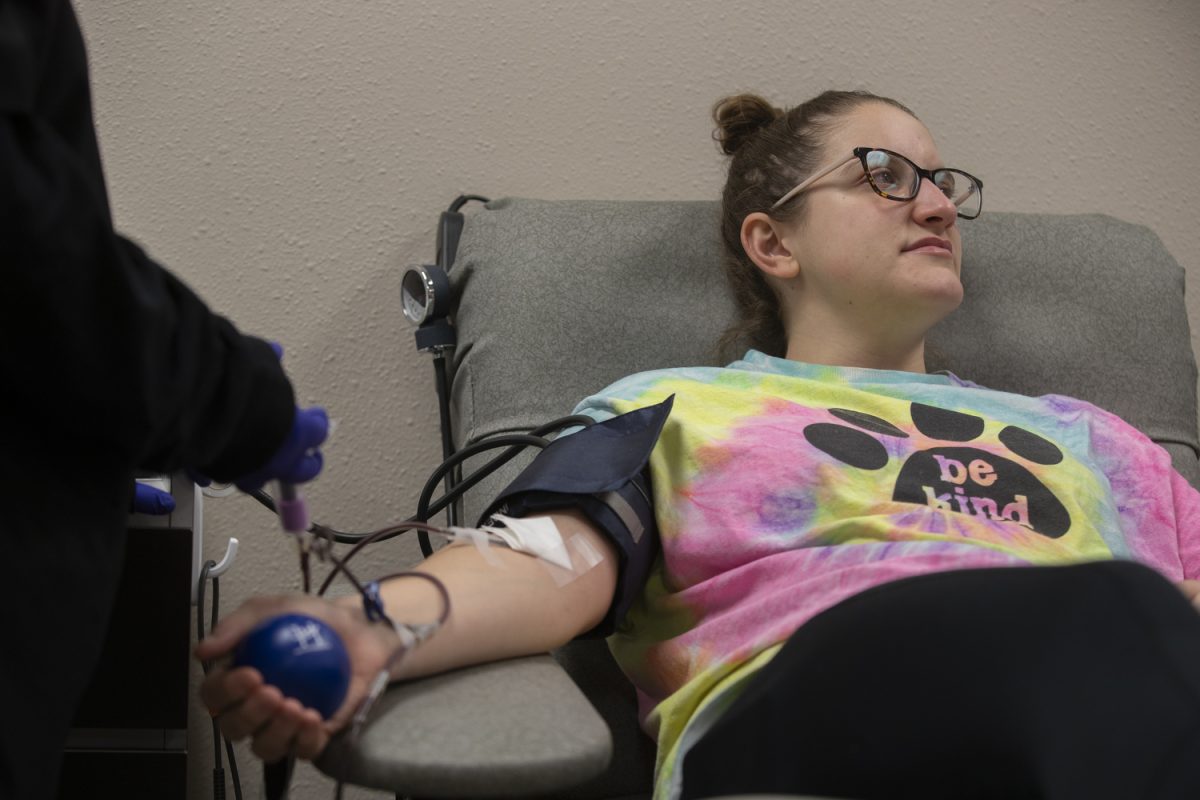Coralville blood donation center ImpactLife recently implemented a new assessment strategy following approval by the FDA to allow men who have sex with men to donate blood.
Located at 1801 Second St., the center implemented the strategy on Sept. 25. The new assessment established a new set of criteria for donors and was originally adopted and approved by the Food and Drug Administration in May.
Vice president of donor services at ImpactLife Pete Lux said the assessment comes after years of what is commonly known as a “blanket deferral,” where all men who had sex with men in the last three months were automatically ineligible to donate blood, regardless of the circumstances.
With the implementation of the new assessment, the criteria for eligibility changed and is now more individualized, focusing on specific persons’ sexual partners, Lux said.
The questions are now asked according to any new sexual partners in which there has been anal sex as well as whether or not the individual has had multiple partners in the past three months.
If individuals answer yes to either of these questions, Lux said, they are automatically deferred for a period of three months and are ineligible to donate.
“The assessment is meant to determine the risk the donor may pose on the blood supply,” Lux said.
The concern was that those donors may potentially carry human immunodeficiency virus, commonly known as HIV.
With this new assessment, Lux said, individuals are still turned away at a much lower rate than before to the implementation and for entirely different reasons.
Since Sept. 25, ImpactLife has turned away 20 individual donors, both male and female, Lux said. These deferrals have been for men who have sex with men, females whose sexual partners are men who have sex with men, malaria risk, medications, and other high-risk activities.
Kirby Winn, public relations manager for ImpactLife, said before the new guidelines, any man in a monogamous relationship having sex with another man was ineligible to donate.
“People have come through and been screened with the new questions, and we have received primarily positive feedback from donors and our community,” Winn said.
Winn said, however, that if a donor has any concerns regarding the new assessment, they are directed to fill out the “EarlyQ,” which allows donors to fill out the questions posed on the assessment in a private setting from the comfort of their own home on a computer or medical device prior to coming into the donation center.
“From time to time, we will hear concern regarding donor acceptance and eligibility criteria, and our staff will document those donor concerns,” Winn said.
In the future, ImpactLife looks forward to holding events that prior to the assessment were never possible, Lux said. Though ImpactLife prides itself in diversity, equity, and inclusion, Winn said, blood collection hasn’t been affiliated with LGBTQ+ organizations.
“We want to be focused on the authenticity of those relationships and we want people to know about this change and hopefully come in and donate,” Winn said.
Lux said he wants people to feel included in this new assessment while also understanding that deferrals will still happen.
“This new set of criteria has become deferring potential donors based on an assessment of their actions, medications, medical criteria, and more, allowing it to apply to everyone equally,” Lux said.










